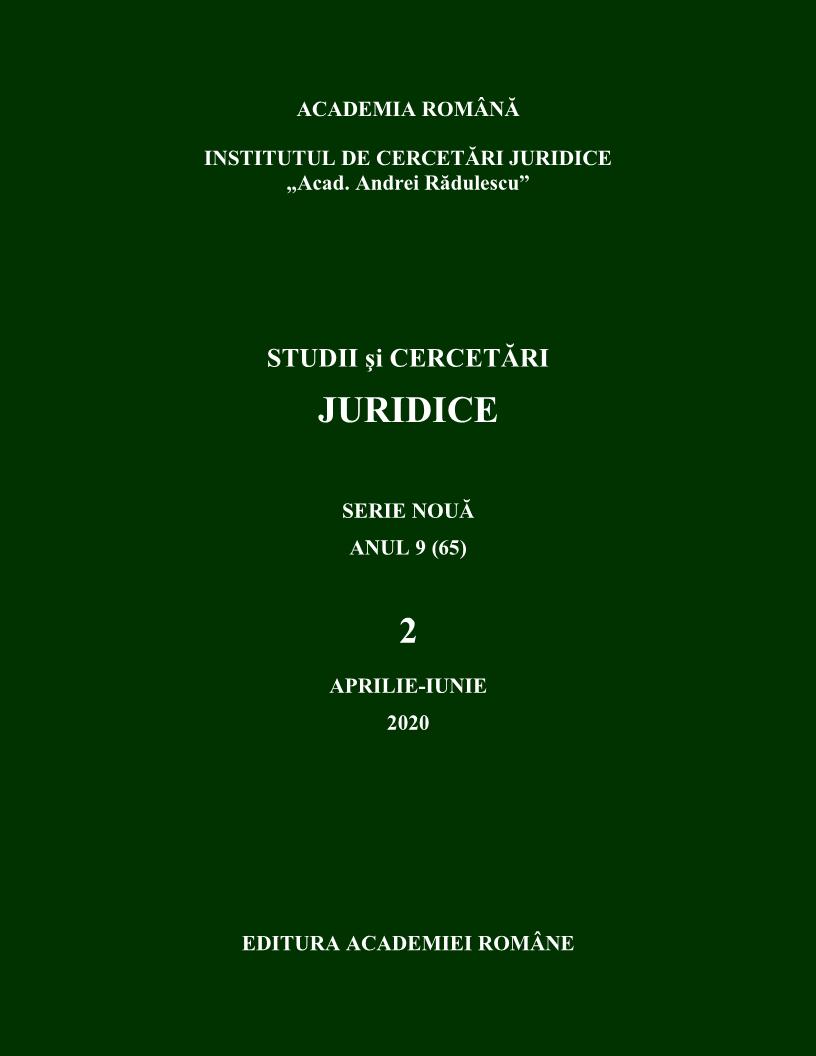Tratatele de pace din 1919–1920 și rolul lor în dezvoltarea dreptului internațional. Un secol de drept al păcii și cooperării interstatale
The peace treaties of 1919–1920 and their role in the development of international law. A century of peace law and interstate cooperation
Author(s): Mircea DutuSubject(s): International Law
Published by: Editura Academiei Române
Keywords: nation state; international public law; transnational law; Paris Peace Conference 1919–1920; peace treaties; unitary nation state; Romanian school of international law; national jurispr;
Summary/Abstract: The marking of the hundredth anniversary of the Peace Conference and international treatise of Paris (1919-1920), which ended the first world war and consecrated the new political and strategical, European and international realities, is treated rather indifferently, and when it actually is taken into consideration, critiques to the “Versailles system” are overrated, the injustice brought by it and its dour consequences are highly claimed, its merits and inheritance being highly ignored. Neglected and insufficiently analyzed, its inheritance, in the field of international law and practice, remains highly important. The Peace Treaties and their eventual conventional developments have marked the entrance of international law in its modern phase, have consolidated its criminal norms, and by applying the principle of nationalities, the nation state has become the main subject of international normativity, enriched with new principles and values. Organizing peace by law was to lead, in the following decade, to the prohibition of war, collective security would know important experiences, and by creating the Society of Nations, international relations would become institutionalized. Continuing these foundations will generate, after the second great conflict, first by the U.N. and their Charter (1945), the phase of contemporary international law and the international juridical and institutional civilization still standing as of today. For Romania, the international context created in 1919-1920 has favored the completion of the creation of the unitary nation state and a period of great creative development and international affirmation of its statehood. As a creation of law and of the principles of nationalities, the Great Romania has been so tightly linked to the “Versailles system”, that its broader strokes would last just as long as it did. However, even today’s Romania, despite the territorial readjustments brought on by force starting with 1940, is still a “Romania of the Trianon”, the Treaty signed with Hungary on June 4th, 1920, by which its North-West border was settled, has passed the test of time but has remained a subject of dispute regarding its significance. The permanent revisionism of Budapest, developed under new forms as of today, and replicated in Bucharest by a deafening silence, does not favor the “reconciliation of memory”, but, in lack of actual dialogue, it amplifies suspicion.
Journal: Studii și Cercetări Juridice – Serie Nouă
- Issue Year: 2020
- Issue No: 2
- Page Range: 7-63
- Page Count: 57
- Language: Romanian

